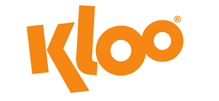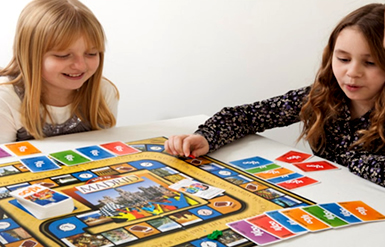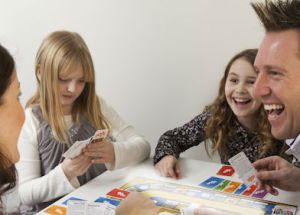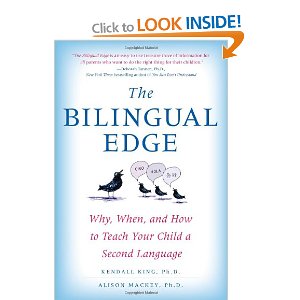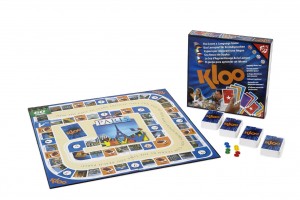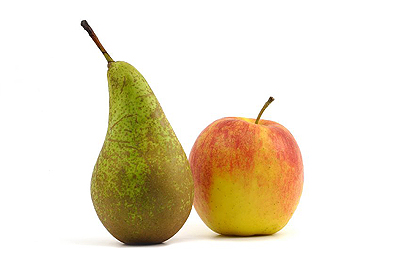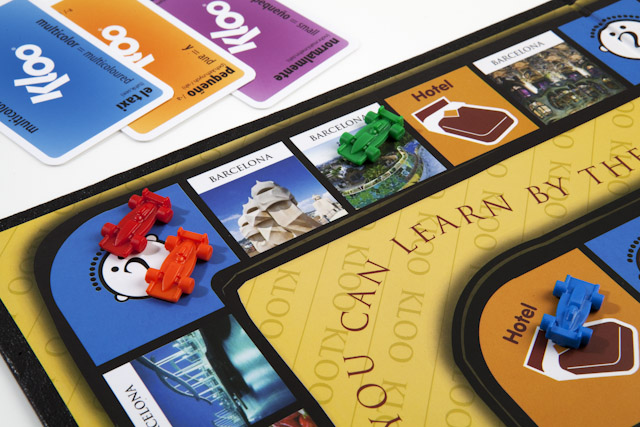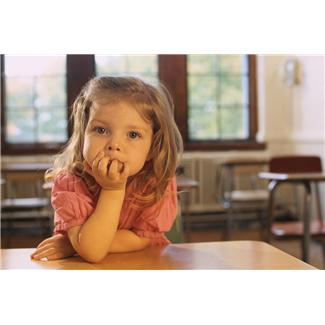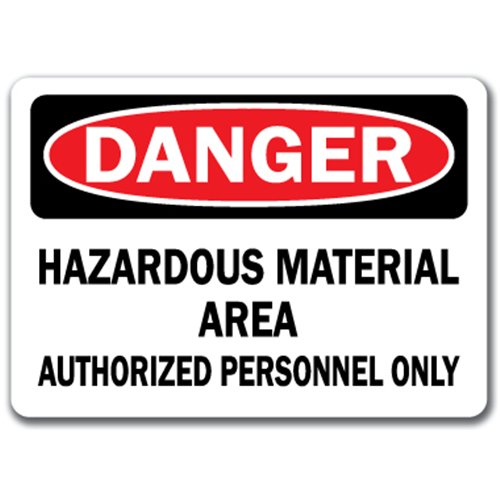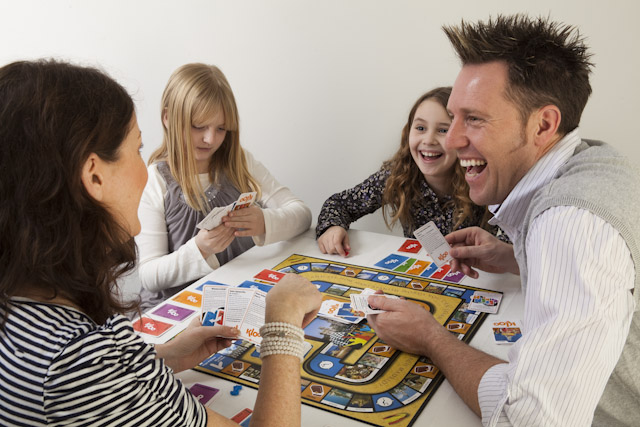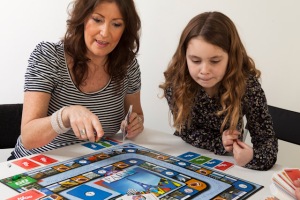
Family Board Games and why they’re still important
Mum : “How about a game of Monopoly or KLOO after dinner tonight?
Daughter: “But isn’t ‘X-Factor’ on the box at 8 pm?”
TV v Traditional Family Board Game – that’s a complete mismatch, right? It’s a David v Goliath struggle – that Goliath wins hands down in nearly every household. We have more channels that we can possibly watch. We have PVRs in case we miss something. There is video gaming too. Not to mention the Internet. And what about Smartphones?……
It seems that, without really noticing or understanding the implications, we have become neurally plugged into a virtual world that even Captain Kirk would have boggled at. And why not you might ask? It is fun. And what harm can it do? Ah…funny you should ask.

Before we complacently switch on the box – perhaps we should consider these truly horrific facts about screen time and its affect on our physical and mental health – especially in children. Here is the latest research. It should stop us in our tracks.
* 8 – 18 year olds watch on average 4 hours a day with a further two hours of screen time on computers and video games.
* Reading, playing and socialising are getting squeezed to the margins by screen time.
* Homework is losing out to screen time by 12 to 1 in terms of time allocation.
* Kids who watch at least four hours a day are more likely to be overweight.
* Kids who watch violence on TV and on video games are becoming desensitised to violent behaviour and lacking in empathy.
* Children spend more time in front of screens than they do in the classroom!
Screen time can be good for us. It can be educational, entertaining and diverting….but the sheer quantity of screen time that we are consuming is becoming a monstrous problem. Dr Aric Sigman, an American expert on the affect of TV on children says:
“There is a definite relationship between the amount of time kids spend watching screens per day and a range of physical, cognitive and educational problems later on. These include severe problems like ADHD and milder but still worrying damage to their ability to concentrate, their attention span and performance in school.”
And if you think he’s American and that these problems haven’t reached the UK yet – think again. The problem is here – and it is big.
“Kids with a TV in their bedroom are less likely to be able to read by the age of 6,” says Dr Sigman. “This is one reason Britain has such a poor literacy rate. Also, 37 per cent of British ten-year-olds play computer games for more than three hours a day – one of the highest rates in the world. This has a profound effect on their attention span, their ability to read and concentrate in school.”
It gets worse for UK children.
“Just because something is called children’s television, don’t assume it’s better for your kids,” says Dr Sigman. “These claims are made by the people who produce the programmes, not by scientists. In fact, a Carry On film is probably better for your child than a lot of CBBC shows, because they lack the fast editing and bright colours that do all the damage.”
The USA, which is usually ahead of us in addressing these issues, is wrestling with ways to deal with this monster in the room. They have even started a series of charitable websites to help parents combat excessive screen time. One organisation www.tvturnoff.org provides an arsenal of ideas on how to reduce and create alternative ways to have fun, entertain and occupy the family. Significant among them is “Game Night” where they encourage families to switch off the TV and instead play games, board games, card games, any game! Why? Because they help children in all the ways that screen entertainment don’t. They provide interactive play time. They help children build their social skills and can be educational. They anchor us in the real world!
Board Games for Children
Board Games are the antithesis of the virtual world. They are social, fun, engrossing and stimulating. What is more (and here’s a little known fact) – today’s children love them! Teachers have written to tell me that their children are “going crazy” for KLOO Language games – they’re words not mine.
Best of British Board Games
KLOO makes learn French, Spanish or English board games. Just by playing you learn a language. In 2011 KLOO Games won the 2011 “Best of British Board Game” at the ToyTalk awards. So if you’re looking to buy a Great Family Board Game and Learn a language – try KLOO.
So I ask again – anyone for Spanish KLOO? What about Hide and Seek?
PS If you are looking for new games, try this board games blog. Good reviews by games enthusiasts.


